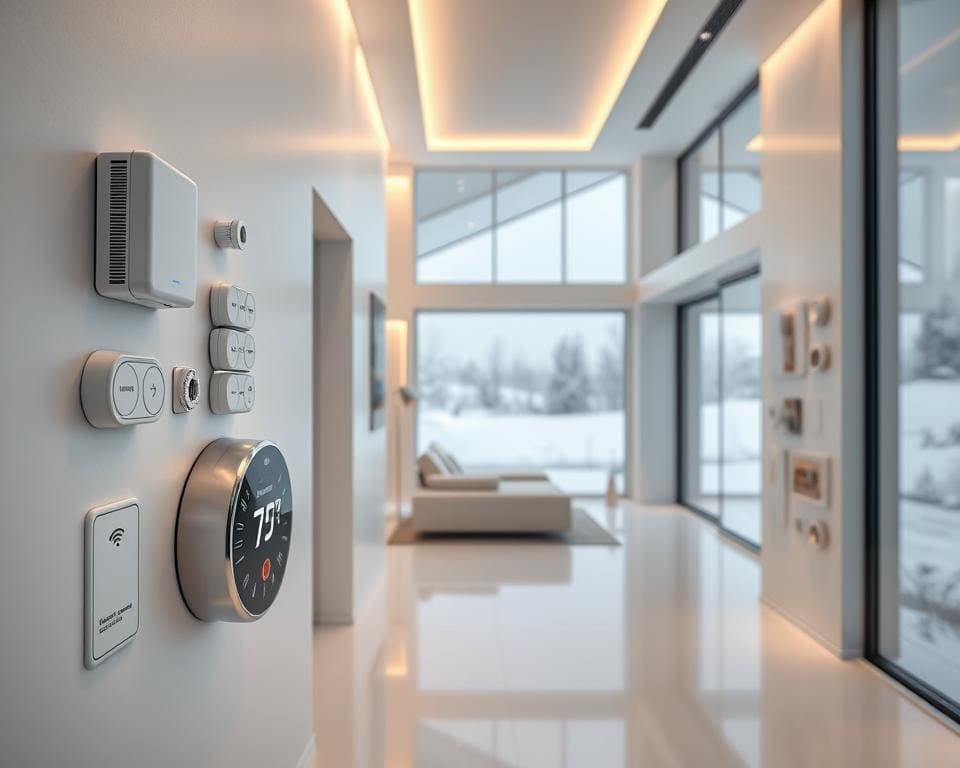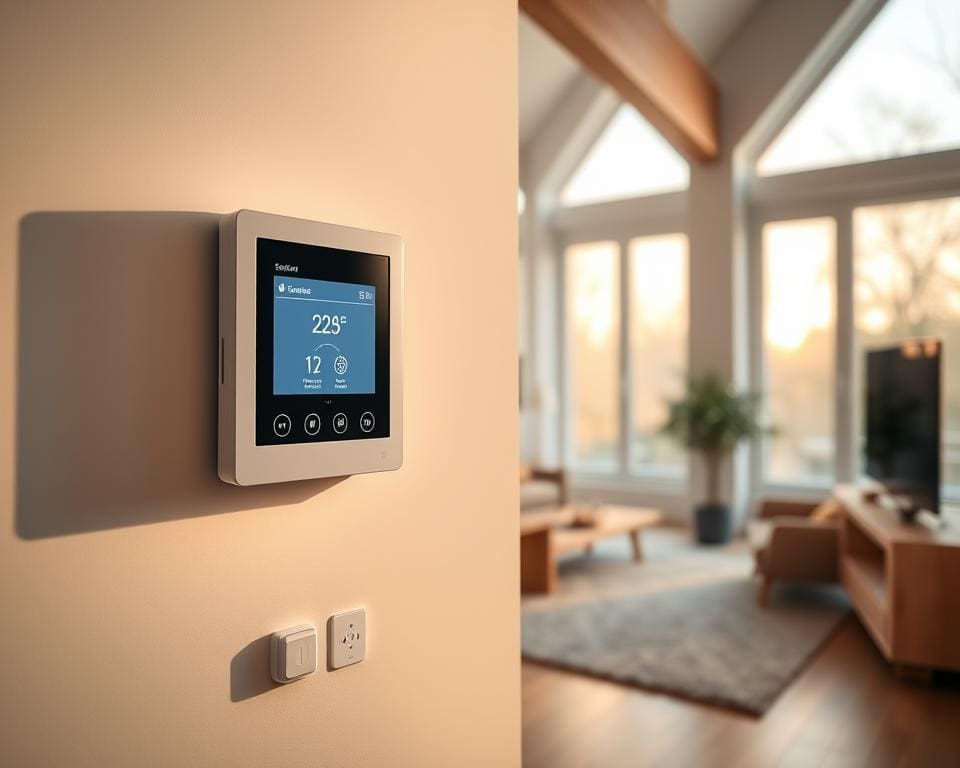As we look ahead to 2025, the question on many minds is, how smart is your home heating system in 2025? The advancement of smart home heating technology is set to transform the way we manage our living environments. With intelligent heating controls becoming increasingly prevalent in modern households, these systems promise not only enhanced comfort but also significant energy efficiency and sustainability. Embracing smart heating solutions will pave the way for a more eco-friendly future, allowing homeowners to enjoy the benefits of a connected, responsive heating experience.
The Rise of Smart Home Heating Systems
The evolution of smart heating technology marks a significant milestone in creating more efficient and convenient living spaces. Smart home heating systems have emerged as essential components of modern home automation. These systems encompass advanced thermostats capable of learning user preferences, thereby tailoring heating patterns to align closely with individual routines.
Understanding Smart Heating Technology
Smart heating solutions are designed to utilise sophisticated heating technology that includes sensors and data analytics. Brands like Nest and Ecobee leverage machine learning to enhance the user experience. These devices monitor temperature patterns, allowing for intelligent heating control that automatically adjusts to maximise comfort while minimising energy consumption. Users can gain insights into their energy consumption through innovative interfaces designed for seamless interaction.
Key Features of Smart Heating Solutions
Several core features define smart home heating systems, making them indispensable for energy-conscious households:
- Remote access and control via smartphone apps, providing flexibility for users to adjust settings from anywhere.
- Scheduling capabilities that cater to individual preferences, allowing users to set heating times according to their routines.
- Integration with other smart home devices, enhancing overall functionality and efficiency.
- User-friendly interfaces that enable easy navigation and adjustments.
- Energy monitoring capabilities that track usage, alerting users to optimise their energy consumption.
Information from sources such as Energy Saving Trust illustrates that these features significantly contribute to improved energy efficiency, helping users to cut down on energy bills while enjoying the comforts of a well-heated home.

How smart is your home heating system in 2025?
The evolution of heating technology over recent years reveals vast improvements in the efficiency and adaptability of heating systems. Comparing traditional heating systems with their modern smart counterparts highlights an undeniable shift towards advanced solutions that cater to the unique demands of contemporary households.
Comparing Traditional versus Smart Heating Systems
Traditional heating systems have long been regarded as reliable, yet they come with certain limitations. Inflexibility stands as a significant drawback, as these systems often operate on a set schedule, regardless of actual usage patterns. This can lead to higher operational costs, especially when heating is required during off-peak hours or in unoccupied spaces.
On the other hand, smart heating systems present a compelling alternative. Equipped with cutting-edge heating technology, they allow for seamless integration with home automation setups. Features such as zoning control and intelligent learning algorithms make these systems adaptable to individual preferences and real-time conditions. For instance, studies suggest that homes outfitted with smart thermostats have successfully reduced heating bills by as much as 20%, underlining the financial benefits of making the switch from outdated methods.
The advantages of smart heating solutions not only encompass cost savings but also enhance environmental sustainability. As households become more conscious of their energy consumption, smart heating systems emerge as a practical choice for reducing waste and promoting efficiency in heating applications.
Advanced Thermostats and Their Role
In the realm of home heating, advanced thermostats have become essential tools for optimising comfort while reducing energy consumption. Programmable thermostats stand at the forefront of these innovations, allowing users to tailor heating schedules that match their lifestyle. This personalisation promotes energy efficiency, with potential reductions in energy bills reaching up to 20%. The integration of these devices into home automation systems illustrates their significant role in modern dwellings.
Benefits of Programmable Thermostats
Programmable thermostats offer numerous advantages that enhance living environments. Equipped with multiple sensors for temperature, humidity, and occupancy, these devices collect data to facilitate intelligent heating control. Features such as automatic temperature adjustments based on user habits guarantee a consistently comfortable atmosphere while minimising unnecessary heating. Users can access these devices remotely, allowing for convenient adjustments via smartphones or tablets, integrating them seamlessly within a network of connected devices.
Integrating Thermostats with Home Automation
The enhanced functionality of advanced thermostats is highlighted through their integration with home automation systems. These thermostats communicate fluently with other smart devices, creating an interconnected ecosystem that enables effortless control. Voice-activated assistants such as Amazon Alexa and Google Assistant can manage heating settings, enhancing the user experience with intuitive commands. This level of integration ensures that the heating system is not only intelligent but also part of a cohesive, energy-efficient home environment.
Energy Efficiency and Cost Savings
With the growing emphasis on energy efficiency, smart heating systems have emerged as vital tools in modern homes. These systems not only optimise energy use but also translate to substantial cost savings for homeowners. By implementing energy-efficient technology, households can enjoy environmentally friendly heating solutions while keeping expenses in check.
How Smart Heating Reduces Energy Consumption
Smart heating systems employ advanced algorithms to monitor and adjust heating automatically. This real-time responsiveness significantly reduces unnecessary energy consumption. Such systems analyse energy performance data, ensuring that heating is applied only when necessary. Households across the UK have reported remarkable decreases in their energy usage, showcasing that commitment to smarter heating leads to both comfort and sustainability.
Financial Benefits of Upgrading to Smart Systems
Investing in smart heating systems is more than just an upgrade; it represents a pathway to long-term financial advantages. Homeowners can expect lower energy bills, allowing them to recoup their investment within several years. Additionally, government incentives for adopting energy-efficient technology encourage consumers to make the leap towards smarter solutions. As UK energy providers illustrate, the financial benefits associated with upgrading to energy-efficient heating technology are not just appealing but attainable.
Connected Devices and Their Impact on Heating Control
The rise of connected devices has transformed how we approach smart home heating. Integration within home ecosystems allows for seamless control over various devices, including smart heating systems. This interconnectedness enhances the overall experience and contributes to greater energy efficiency.
Smart Home Ecosystems and Integration
Smart home heating solutions thrive within a robust ecosystem of connected devices. These systems enable users to engage with multiple elements of home automation, creating a central platform for managing everything from lighting to temperature. The synergy between these devices fosters a user-friendly environment where intelligent heating control becomes more accessible. As a result, homeowners can customise their heating preferences, ensuring they align perfectly with their daily routines.
Remote Control and Monitoring Capabilities
One of the most compelling features of modern smart heating systems is the ability for remote control. Through dedicated mobile applications, users can monitor and adjust their heating settings from virtually anywhere, promoting convenience and flexibility. Whether making changes while at work or on holiday, the peace of mind that comes with being able to control your heating remotely cannot be overstated. This adaptability not only enhances comfort but significantly contributes to energy savings by allowing users to optimise their heating schedules more effectively.
The Future of Heating Systems: Trends to Watch
The landscape of heating technology is evolving, presenting a wealth of innovative solutions that promise to redefine how we approach home heating. As we look towards the future of heating systems, advancements in artificial intelligence and sustainable energy sources are poised to make a significant impact. Industry analysts anticipate that by 2025, these changes will lead to remarkable shifts in energy-efficient technology, enhancing comfort and reducing the environmental impact of our homes.
Innovative Heating Technologies on the Horizon
Emerging technologies, such as ground-source heat pumps and district heating systems, play an instrumental role in transforming traditional heating methods. These systems harness natural energy and distribute it efficiently, ensuring homes remain warm while minimising energy waste. The integration of smart controls allows for real-time adjustments based on usage patterns, optimising energy consumption and enhancing sustainability.
Sustainability and Environmental Impact
Adopting smart heating solutions presents an opportunity to significantly reduce carbon footprints. By leveraging renewable energy sources and increasing energy efficiency, households can align with sustainability goals and contribute positively to the environment. Research indicates a growing correlation between the uptake of advanced heating technologies and lower greenhouse gas emissions in the UK.
User Experience and Smart Heating Interfaces
The emergence of smart heating systems has significantly transformed user experience, empowering individuals to manage their heating effortlessly. With intuitive controls, these systems cater to users of all technical levels, creating an environment where comfort blends seamlessly with technology.
Intuitive Controls for Enhanced Comfort
Smart home heating relies heavily on intuitive controls that facilitate easy navigation. Users appreciate how mobile applications and voice commands enable simple communication with their heating systems. This user-friendly interface allows for quick adjustments without a steep learning curve. Feedback highlights the satisfaction derived from managing heating schedules and temperatures with just a few taps or commands. The incorporation of heating technology is not just about functionality; it prioritises user engagement and satisfaction, enhancing daily operations within the home.
Customisation Options Available to Users
One of the standout features of smart heating systems lies in their extensive customisation options. Users can tailor their environments according to personal preferences and routines. Programmable schedules allow for automatic adjustments based on specific times, while climate control settings provide flexibility for seasonal changes. Additionally, room-specific heating ensures that every space maintains its desired temperature, optimising comfort and energy efficiency. These features elevate the user experience by allowing for personalised heating solutions that adapt to unique lifestyle needs.
Challenges in Implementing Smart Heating Solutions
The journey towards embracing smart heating solutions can be riddled with challenges that homeowners must navigate. One of the primary obstacles encountered is the upfront cost associated with these innovative systems. Although smart heating implementation promises long-term savings through energy-efficient technology, the initial investment can deter many from upgrading their existing systems. Homeowners are often faced with the dilemma of assessing the return on investment and whether these advanced systems will truly deliver on their energy-saving promises.
Additionally, technical difficulties during installation can pose significant hurdles. Smart heating systems may require modifications to existing infrastructures, creating compatibility concerns for users. Homeowners may find themselves grappling with the intricacies of integrating smart devices with their traditional heating setups, leading to frustration and a sense of overwhelming complexity. This process underscores the need for qualified technicians who can assist in the seamless transition towards a modern heating solution.
Consumer education plays a pivotal role in overcoming these barriers. It’s essential for manufacturers to provide adequate support and resources to help homeowners understand the benefits and functionalities of smart heating technology. By fostering a knowledgeable community around these advancements, the industry can empower consumers to make informed decisions and embrace energy-efficient technology without hesitation.









